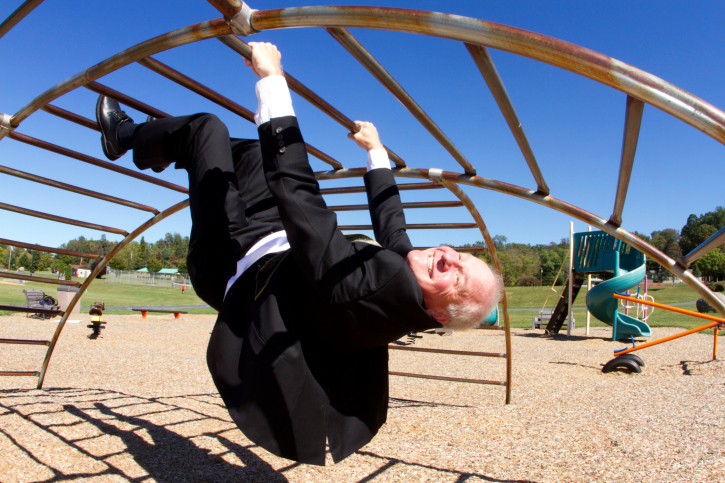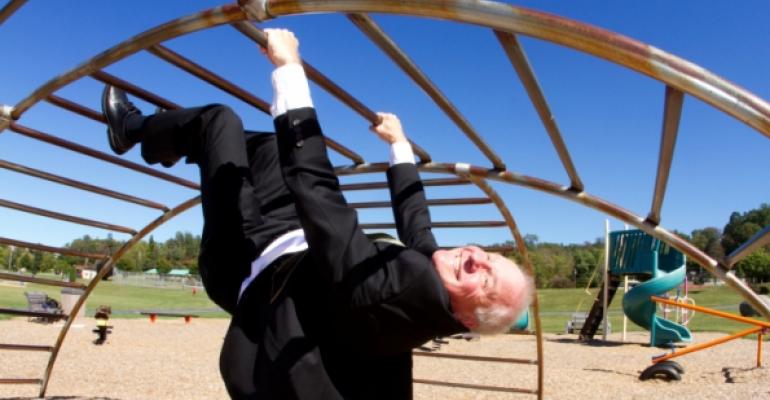 I think I got a touch of whiplash when I read these two blog posts back to back: In praise of dull meetings, by Association Meetings International Editor James Lancaster; and You Cannot be Serious! Why Events are the Perfect Adult Playground by Event Manager Blog guest poster and meeting technology expert Dr. Cathy Key.
I think I got a touch of whiplash when I read these two blog posts back to back: In praise of dull meetings, by Association Meetings International Editor James Lancaster; and You Cannot be Serious! Why Events are the Perfect Adult Playground by Event Manager Blog guest poster and meeting technology expert Dr. Cathy Key.
If you know me even a tiny bit, you'll probably guess that I side with Dr. Key on this one. Mr. Lancaster's premise is that games—and by extension, the gamification of meetings—represent "the seemingly relentless dumbing down of human intelligence." In fact, using fun ways to engage adult learners actually gets some pretty good results: Just ask the good folks at the Institute for Continuing Healthcare Education who used a customized version of the popular bar trivia game Quizzo to engage docs at its early-morning satellite symposium at the annual American Academy of Ophthalmology meeting a few years ago.
Even our former columnist Mitchell Beer, CMM, who described himself as "a writer and meetings strategist who abhors trivia, resents wasted time, routinely rolls his eyes at gamer culture, and whose daughter once declared that he doesn’t believe in fun," ended up concluding,
"It turns out that building a game into a face-to-face event is a great way to keep participants passionately engaged. The twist is that it’s worth doing only if it serves the purpose of the event."
And it's not just about mobile app games, of course. It's about, as Key says, all forms of play that help us free ourselves of fear and stress, connect with our creativity and each other, and create more fertile environments for learning. I really like her call for us to consider...
What if the whole point of events was not serious at all. What if we shifted our view and saw conferences as adult playgrounds in which new ideas come alive?...A shift in context can radically alter our view of a situation and lead to breakthrough results. By viewing your event as a playground the focus shifts from networking lunches and listening to speakers to creating a safe space for creativity, innovation, brilliance and collaboration.
As Mitchell points out, as long as the fun elements are designed to support the meeting's end-goals, they'll actually add to the sharpening up, not dumbing down, of human intelligence. I hope Mr. Lancaster someday has a chance to see that lots of association meetings nowadays are actually pretty fun and engaging places to be, places where learning is not drudgery but exciting, interesting, and even competitive—and not places that the rest of us would consider "terminally dull."
ames Lancaster, a member of the team at CAT publications and editor of their magazine, Association Meetings International. - See more at: http://padraicino.com/hey-meetpie-owe-us-apology/?utm_source=rss&utm_medium=rss&utm_campaign=hey-meetpie-owe-us-apology#sthash.z2MXDwDF.dpuf
P.S. I'm not the only one finding issues with some of Mr. Lancaster's recent posts. Sool Nua's Padraic Gilligan is calling for an apology over some of the AMI's editor's comments in this post about the value, or lack thereof, of trade shows.
ames Lancaster, a member of the team at CAT publications and editor of their magazine, Association Meetings International. - See more at: http://padraicino.com/hey-meetpie-owe-us-apology/?utm_source=rss&utm_medium=rss&utm_campaign=hey-meetpie-owe-us-apology#sthash.z2MXDwDF.dpuf

 I think I got a touch of whiplash when I read these two blog posts back to back: In praise of dull meetings, by Association Meetings International Editor James Lancaster; and You Cannot be Serious! Why Events are the Perfect Adult Playground by Event Manager Blog guest poster and meeting technology expert Dr. Cathy Key.
I think I got a touch of whiplash when I read these two blog posts back to back: In praise of dull meetings, by Association Meetings International Editor James Lancaster; and You Cannot be Serious! Why Events are the Perfect Adult Playground by Event Manager Blog guest poster and meeting technology expert Dr. Cathy Key.




